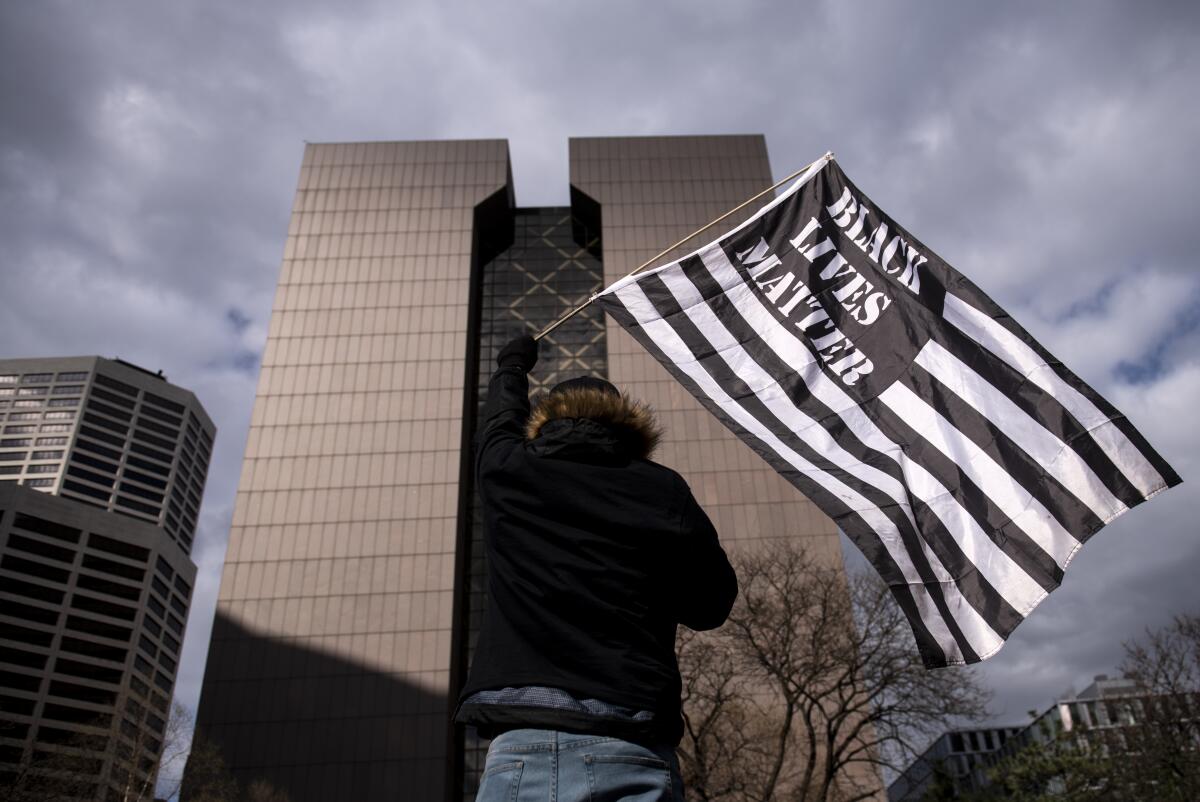Opinion: Does Derek Chauvinâs conviction count as progress? Readers arenât so sure

Derek Chauvin is a convicted murderer, and among our letter writers, there is almost no disagreement with the Minnesota jury that found the former Minneapolis police officer guilty on all counts for suffocating George Floyd as he lay handcuffed and prone on the street for nearly 10 minutes last Memorial Day. (I say âalmost no disagreement,â because a few submissions were, to put it charitably, difficult to read â and for a letters editor whoâs read just about everything imaginable over the years, thatâs saying something.)
Where there is some variety in reader opinions is on the question of what the Chauvin conviction means for policing in America, and whether it indicates progress in dealing with systemic racism. Although some of our letter writers have expressed hope that the spectacle of a former police officer being handcuffed and remanded into custody signifies change is on the way, most have echoed op-ed columnist LZ Granderson and The Times Editorial Board and said theyâre still waiting for a reason to hope.
âââââââââââââ
To the editor: Chauvin was found guilty â yes! But it took a brave teenager filming him with her phone and an international movement to bring this about.
Now, letâs review other videos by brave bystanders and demand that other prosecutors in the country bring charges against the police officers who did similar things. Then, letâs require every police department to take armed officers off pretextual stops in poor and minority communities and focus instead on major crimes.
Leave traffic enforcement to unarmed officers. Reallocate half the police budget to social and mental health services by unarmed professionals. Only then will people of color be safe in America.
Val Carlson, Los Angeles
..
To the editor: Prosecutors in the Chauvin trial presented the jury with facts, whereas the defense chose merely to cloud those facts. The jurors accepted the facts presented by the prosecutors and found Chauvin guilty as charged on all three counts.
Question for the thousands of police officers in Southern California: Having seen the videos and listened to the evidence, how would you have voted?
If Chauvin was a black police officer and his knee was on a white manâs neck taking his life away, how would you have voted? The public would like to know.
Donald Peppars, Pomona
..
To the editor: Much of the discussion about the trial has been about the verdict and police reform. But there is one overwhelming problem in police recruitment that has gone unmentioned.
Generally, military veterans are sought out as police officers because they are already trained and they understand discipline. But they are trained to kill; their mentality is us versus them.
The police, on the other hand, are here to protect and serve. What happened to that credo?
Police departments and training academies should be looking for recruits of all colors and ones who are just out of college, not the military.
Meg Quinn Coulter, Los Angeles
..
To the editor: Justice has been served, and the entire world, which has been closely watching, has reason to rejoice at the guilty verdict that was rendered by 12 citizens.
The outcome of this judicial process has the potential of moving along badly needed police reforms, but we should disregard House Speaker Nancy Pelosiâs (D-San Francisco) public message turning Floyd into a martyr, as if he had willingly died to bring social justice.
It would be a great disservice if the guilty verdict promotes the idea that police officers are out there hunting people of color, because this can only exacerbate the troubled relationship between those whose duty is to protect and to serve indiscriminately, and the members of society who should benefit from such protection.
This is a good moment to remind people that resisting or fleeing police detention can lead to fatal confrontations, and that police reform, like any other revolutionary movement, is a lengthy process.
Berta Graciano-Buchman, Beverly Hills
..
To the editor: Chauvinâs conviction has little to do with juries or criminal justice systems or police reforms. We can thank ubiquitous, cheap, detailed video recordings from every angle for the conviction.
Sadly, when those videos are not present, or too dark, or too blurry, or too short, the outcomes for police brutality will be as they typically are. Juries will tend to err on the side of officers, as they must to maintain a civil society.
Police reform must provide officers with additional options, help and support when dealing with suspects. When a suspect does not want to enter the back of a patrol car because he is claustrophobic, what is the solution? Murder him by suffocation on the street?
Andrew Tilles, Studio City
More to Read
A cure for the common opinion
Get thought-provoking perspectives with our weekly newsletter.
You may occasionally receive promotional content from the Los Angeles Times.











